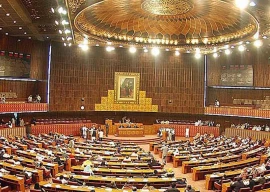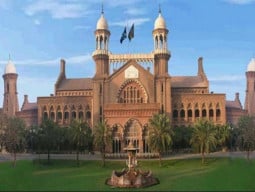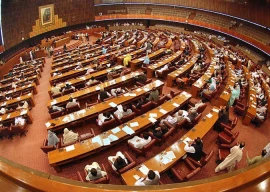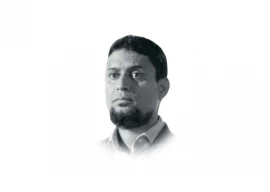
An additional district and sessions judge on Friday asked for the list of heirs of a man murdered during a robbery, a day after the court was informed they had reached a settlement with the murder convict.
Saeed Muhammad, an Afghan national, was convicted of killing Muhammad Sharif and injuring his nephew on resisting a robbery at their house in Shahdra Town in 2003.
His execution, scheduled for July 29, was suspended after his widow Hanifa Bibi, brother Shehbaz Sharif and her daughter Saima Sharif said they had forgiven Saeed Muhammad.
The judge said that death warrants of Saeed Muhammad would remain suspended until further orders. He ordered the police station concerned and the revenue authorities to provide an authentic list of the legal heirs of the deceased.
Earlier, the execution was fixed for June 17. It was halted on the request of the Central Jail superintendent because the family of the convict, living in Afghanistan, could not be reached for the last meeting with him.
Under Section 352 of the Pakistan Prison Rules of 1978, it is mandatory for the prison authorities to communicate to the next of kin the date and time of execution of death row convicts. The section grants death row convicts the right to meet their relatives before their execution.
When contacted for information about the convict’s relatives, the Afghan embassy in Islamabad had sought a temporary suspension of the execution till a consul could visit the convict in the jail. The embassy had also stated that it was possible for Muhammad’s relatives to visit him or to receive the body after execution.
The embassy had also expressed deep concern over ‘last-minute intimation’ of the execution of the Afghan citizen. It had regretted that the diplomatic and consular representatives of Afghanistan were not informed about the case during the trial to ensure due process for their citizen. The embassy said that its communication with one of Saeed Muhammad’s former cellmates suggested that due process of law was not followed in the trial. It had said Saeed Muhammad had expressed his reservations about the trial to the former inmate.
Later, meetings were arranged between the convict and Ahmed Shakir Qamar and Nabib Ullah Ibrahim, representatives of the Afghan embassy, as well as his brother Sultan Ahmed, who had flown in from Afghanistan.
Published in The Express Tribune, August 1st, 2015.

















COMMENTS
Comments are moderated and generally will be posted if they are on-topic and not abusive.
For more information, please see our Comments FAQ